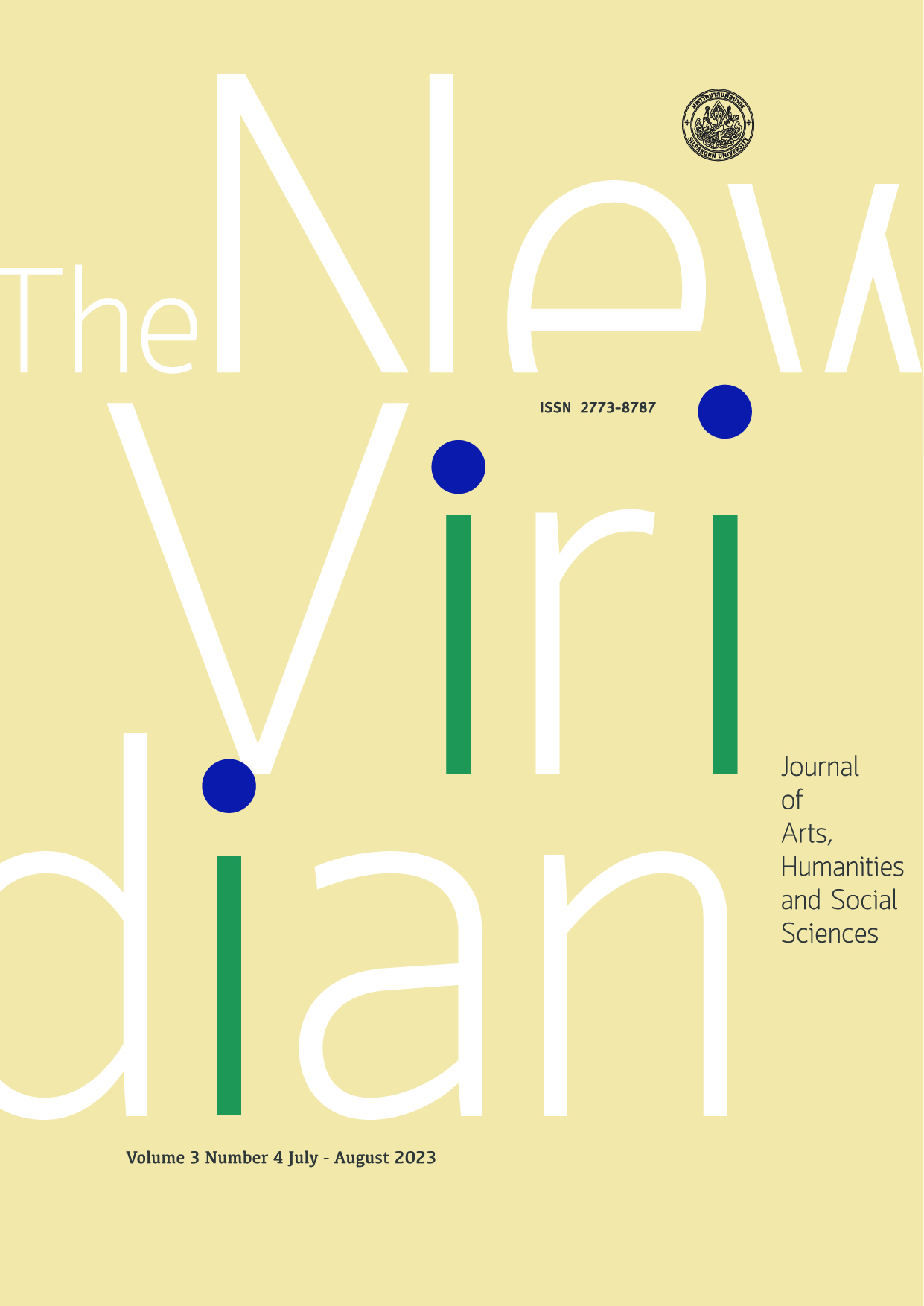กลวิธีทางภาษาในการยุติการสนทนาของผู้พูดภาษาไทย (Linguistic Strategies Used for Terminating in Thai Interactions)
Keywords:
Terminating interactions, Speech act, Pragmatics, Interaction in Thai societyAbstract
Terminating interactions is a speech act which might harm the relationships between interlocutors. It is one of interesting topics in pragmatics studies. The aim of this research is to investigate linguistic strategies used to terminate interactions in Thai and analyze the relation between linguistic strategies and socio – cultural factors. The data were collected using a discourse completion test (DCT) and in-depth interviews. The participants were 180 native speakers of Thai (150 for the DCT and 30 for the in-dept interviews). The notion of speech act is adopted as an analytical framework. The results reveal that linguistic strategies used to terminate interactions in Thai can be classified into two groups: 1) direct strategies which are expressing the needs of the speakers and ordering and
2) mitigating strategies which are giving reason; promising; focusing on listeners’ feelings; apologizing and asking. It is proposed that the notion of ‘face’, /Khwaam kreng jai/ (‘considerateness’) and interpersonal orientation are socio – cultural factors that might be related upon strategy selection.
References
Austin, J. L. (1962). How to Do Things with Words. Oxford: Oxford University Press.
Brown, G., & Yule, G. (1983). Discourse Analysis. Cambridge: Cambridge University Press.
Brown, P., & Levinson, S. C. (1987). Politeness: Some Universals in Language Usage. Cambridge: Cambridge University Press.
Goffman, E. (1967). Interaction Ritual: Essays in Face-to-Face Behavior. New York: Doubleday Garden City.
Hurford, J. R., Heasley, B., & Smith, M. B. (1983). Semantics: A Coursebook. Cambridge: Cambridge University Press.
Intachakra, Songthama. (2012). Politeness Motivated by the ‘Heart’ and ‘Binary Rationality’ in Thai Culture. Journal of Pragmatics, 44(5): 619-635.
Krutnate, Pannatorn. (2014). Linguistic Strategies Used for Terminating Conflict Talk in Thai Interactions (กลวิธีทางภาษาที่ใช้ยุติการสนทนาที่มีความขัดแย้งในภาษาไทย). Doctoral dissertation, Chulalongkorn University, Bangkok, Thailand.
Locher, M. A., & Graham, S. L. (Eds.). (2010). Introduction to Interpersonal Pragmatics. In Interpersonal Pragmatics, (pp. 1-13). Berlin: De Gruyter Mouton.
Markus, H. R., & Kitayama, S. (1991). Culture and the Self: Implications for Cognition, Emotion, and Motivation. Psychological Review, 98(2): 224-253.
Nommanas, Thidarat. (2003). Negation in Responses of Thai Speakers (กลวิธีการตอบปฏิเสธของคนไทย). Master’s dissertation, Thammasat University, Bangkok, Thailand.
Ongwuttiwat, Sittitam. (2015). Disagreement in Thai Conversational Discourse and Native Speaker’ Motivational Concerns (การแสดงความเห็นแย้งในปริจเฉทการสนทนาในภาษาไทยและข้อคำนึงที่เป็นเหตุจูงใจ). Doctoral dissertation, Chulalongkorn University, Bangkok, Thailand.
Pengsuriya, Nutchanart. (2006). The Usage of Stigmatized Expressions in Thai (การใช้ภาษาเพื่อแสดงการตำหนิของคนไทย). Master’s dissertation, Thammasat University, Bangkok, Thailand.
Pothiwit, Supasinee. (2004). Strategies for Expressing Conflict in Thai (กลวิธีการแสดงความเห็นโต้แย้งในภาษาไทย). Master’s dissertation, Thammasat University, Bangkok, Thailand.
Searle, J. R. (1976). A Classification of Illocutionary Acts. Language in Society, 5(1): 1-23.
Sripunvoraskul, Radarat. (2019). An Interlanguage Pragmatic Study of the Speech Act of Disagreement by Chinese Learners of Thai: A Case Study of Chinese Students from Yunnan and Guangxi Provinces (การศึกษาวัจนกรรมการแสดงความเห็นแย้งของผู้เรียนภาษาไทยชาวจีนตามแนววัจนปฏิบัติศาสตร์อันตรภาษา: กรณีศึกษานักศึกษาชาวจีนจากมณฑลยูนนานและกวางสี). Master’s dissertation, Chulalongkorn University, Bangkok, Thailand.
Sukwisith, Wison. (2004). The Speech Act of Reprimanding in Thai (วัจนกรรมการบริภาษในภาษาไทย). Master’s dissertation, Chulalongkorn University, Bangkok, Thailand.
Ukosakul, M. (2005). The Significance of ‘Face’ and Politeness in Politeness in Social Interaction as Revealed through Thai ‘Face’ Idioms. In R. T. Lakoff, & S. Ide (Eds.), Broadening the Horizon of Linguistic Politeness, (pp. 117-125). Amsterdam: John Benjamins Publishing Company.


